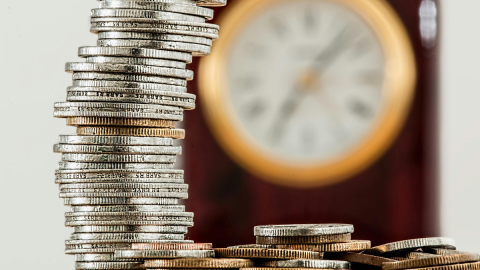Every day that the war in Ukraine continues is not only a day too many, it also rattles the clearly defined principles of sustainable investors. There are a few criteria that are globally part of a standard set of criteria of exclusion for sustainable funds, regardless of whether the fund is based in the USA, Australia, or Europe. One of them has so far been the exclusion of arms producers, as a result of which not only the products themselves, i.e. arms, have been ostracised, but the entire sector has been banned from inclusion in sustainable funds.
Arms manufacturers as saviours of democracy, freedom, and human rights?
The Russian invasion of Ukraine seems to have led some to rethink their position. All of a sudden, austerity programmes were swapped for armament programmes and arms manufacturers were hailed as defenders of Western democracies. Some investment companies have re-admitted arms manufacturers into their sustainable funds, forgetting that arms manufacturers do not only ship to pure democracies. In contrast to an insurance policy, where you are glad if you never have to use it, large armouries seem to come with the tempting factor of making the owners want to use them – as long as they’re there… Not every constitution is as elegant as the Austrian one, which contains a sufficient number of safeguards to protect the population from the tyrannical advances of individuals.
Imagine it’s war and nobody can know it
Sustainable criteria used in the analysis of companies in order to, for example, assess corporate governance would have flagged up Russian power structure for years. There is a reason why terms in office are capped in democracies and why the executive, legislative, and judiciary branch are separate. Otherwise, the temptation becomes overwhelming after years in power to surround oneself with yes-men who have neither the courage nor the ability to be critical to the man or woman in power’s face. This seems to have contributed to the disastrously wrong decision to start a war in Europe, let alone the total lack of empathy in the destruction of human livelihoods. If the military “special operation” is to be executed in the name of the Russian people, one has to ask why reporting on this brutal war has been criminalised.
The frog waking up too late in the cooking pot
The frog was happy in the water that was slowly warming up in the pot, until the water started boiling and it was too late for the frog to escape. This apologue of the boiled frog reminds us of current problems in various ways. On the one hand, of our dependence on fossil commodities and the impact on climate change; on the other hand, of our dependence on Russia and how we are financing the Russian military complex by paying the gas bill. Maybe we should not take the German nuclear reactor off the grid after all? What does the European regulator have to say about that?
European regulatory frameworks – the enemy of the free market economy?
For years, sustainable investors have been laughed at for their relevance to the international financial market. Then the European Commission started issuing regulations for sustainable investments and definitions about what criteria sustainable investments had to fulfil. Even though not one investor is being forced to invest sustainably, the outcry over said regulations is a substantial one. The regression from a free market economy to an inefficient centrally planned economy emerges as the pre-eminent worry. Interestingly, such worries failed to materialise in the past whenever market-dominant index providers created criteria for index compositions or sector definitions from scratch without democratic legitimacy. There is no need to worry: investors can continue to invest outside the remit of the Taxonomy, but it will become more difficult to greenwash said investments.
Bones of contention in the European Taxonomy
Nuclear power and arms are the biggest bones of contention in defining a social and ecological European guideline aimed at the creation of standardised criteria for sustainable investments. For example, after a lot of political pressure and struggle, nuclear power was classified as green (under certain conditions). This means that a sustainable fund according to the Taxonomy Regulation may also invest in utility companies that generate nuclear power. However, this does not mean that an investor who rejects nuclear power for good reason (as discussed in separate blog entries) has to invest in it. For example, the holders of our responsible funds can be sure that those will continue to exclude nuclear power.
The social counterpart, the Social Taxonomy, is only in its development phase and has not been passed yet. If the arms industry were to be given a new role due to the conflict in Ukraine, making it investible from a social perspective on the basis of the European classification, this would not change our understanding of ESG at Erste AM. We will continue to exclude banned weapons, which, according to media reports, are unfortunately being employed in Ukraine, from all mutual funds of Erste AM.
Who is to receive the Nobel Peace Prize?
Federal Minister of Finance, Christian Lindner, has coined the succinct term “freedom energies” for renewable energies in response to the Ukraine war. Those countries that generate a large part of their value added from the sale of fossil commodities are very likely under autocratic leadership. Fossil commodities not only destroy our environment, but their production also promotes non-democratic structures. While nuclear power plants produce plutonium as side product, which in turn can be used in nuclear bombs, renewable forms of energy contribute to climate protection and to the independence from autocrats. Therefore, the question of who is to be awarded the Nobel Peace Prize 2022 should really just be a formality.
We wish you an interesting time reading our ESGenius Letter, which this time is a double issue, discussing both the implications of the European Environmental Taxonomy and the Social Taxonomy. We hope that it will distract you from the weighty current affairs, and – of course, last but not least – that the war in Ukraine will soon come to an end.
Legal note:
Prognoses are no reliable indicator for future performance.
Legal disclaimer
This document is an advertisement. Unless indicated otherwise, source: Erste Asset Management GmbH. The language of communication of the sales offices is German and the languages of communication of the Management Company also include English.
The prospectus for UCITS funds (including any amendments) is prepared and published in accordance with the provisions of the InvFG 2011 as amended. Information for Investors pursuant to § 21 AIFMG is prepared for the alternative investment funds (AIF) administered by Erste Asset Management GmbH pursuant to the provisions of the AIFMG in conjunction with the InvFG 2011.
The currently valid versions of the prospectus, the Information for Investors pursuant to § 21 AIFMG, and the key information document can be found on the website www.erste-am.com under “Mandatory publications” and can be obtained free of charge by interested investors at the offices of the Management Company and at the offices of the depositary bank. The exact date of the most recent publication of the prospectus, the languages in which the fund prospectus or the Information for Investors pursuant to Art 21 AIFMG and the key information document are available, and any other locations where the documents can be obtained are indicated on the website www.erste-am.com. A summary of the investor rights is available in German and English on the website www.erste-am.com/investor-rights and can also be obtained from the Management Company.
The Management Company can decide to suspend the provisions it has taken for the sale of unit certificates in other countries in accordance with the regulatory requirements.
Note: You are about to purchase a product that may be difficult to understand. We recommend that you read the indicated fund documents before making an investment decision. In addition to the locations listed above, you can obtain these documents free of charge at the offices of the referring Sparkassen bank and the offices of Erste Bank der oesterreichischen Sparkassen AG. You can also access these documents electronically at www.erste-am.com.
Our analyses and conclusions are general in nature and do not take into account the individual characteristics of our investors in terms of earnings, taxation, experience and knowledge, investment objective, financial position, capacity for loss, and risk tolerance. Past performance is not a reliable indicator of the future performance of a fund.
Please note: Investments in securities entail risks in addition to the opportunities presented here. The value of units and their earnings can rise and fall. Changes in exchange rates can also have a positive or negative effect on the value of an investment. For this reason, you may receive less than your originally invested amount when you redeem your units. Persons who are interested in purchasing units in investment funds are advised to read the current fund prospectus(es) and the Information for Investors pursuant to § 21 AIFMG, especially the risk notices they contain, before making an investment decision. If the fund currency is different than the investor’s home currency, changes in the relevant exchange rate can positively or negatively influence the value of the investment and the amount of the costs associated with the fund in the home currency.
We are not permitted to directly or indirectly offer, sell, transfer, or deliver this financial product to natural or legal persons whose place of residence or domicile is located in a country where this is legally prohibited. In this case, we may not provide any product information, either.
Please consult the corresponding information in the fund prospectus and the Information for Investors pursuant to § 21 AIFMG for restrictions on the sale of the fund to American or Russian citizens.
It is expressly noted that this communication does not provide any investment recommendations, but only expresses our current market assessment. Thus, this communication is not a substitute for investment advice.
This document does not represent a sales activity of the Management Company and therefore may not be construed as an offer for the purchase or sale of financial or investment instruments.
Erste Asset Management GmbH is affiliated with the Erste Bank and austrian Sparkassen banks.
Please also read the “Information about us and our securities services” published by your bank.

